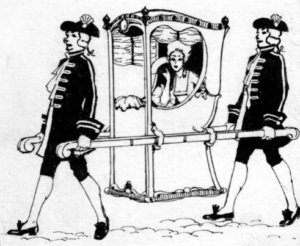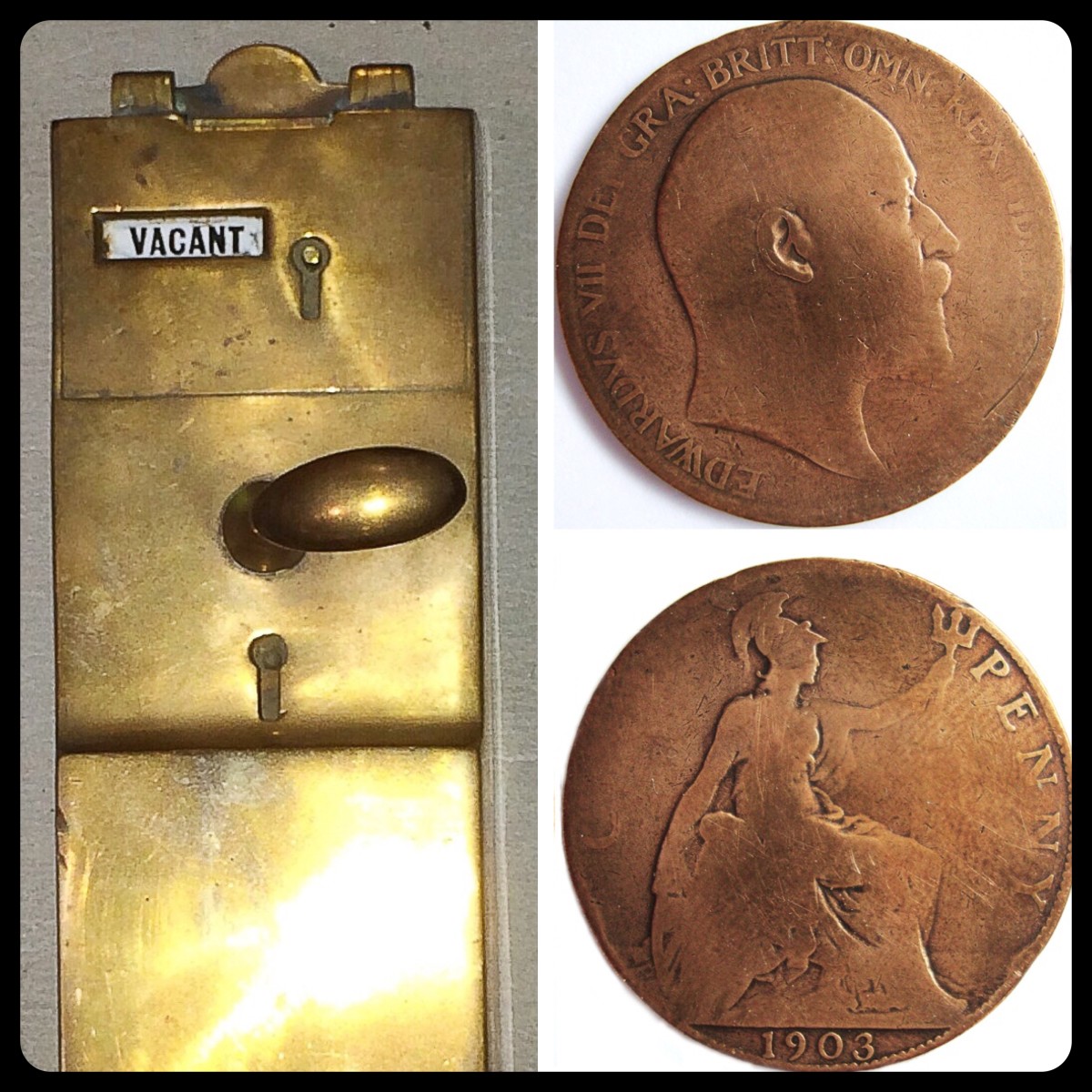Many thanks to Liz, a follower of this blog, for suggesting this post after reading the last one on new words.
Gumption – This was a term for common sense. ‘Use your gumption.’ ‘She’s got no gumption.’ were the kind of things heard in conversation. My mum even used to shorten it when exasperated ‘Where’s your gumpsh?’ would be the sort of thing we’d hear her say. You can’t photograph common sense so here’s an ad for a household cleaner which was very popular here in the 50’s and was called – Gumption! I haven’t seen it for donkey’s years. So I had a rummage on the Internet. It’s long gone from here but is still available in Australia. I found a big tub of it for sale on Ebay. It was £4.13 to buy plus £23.06 postage.

Cheerio – We all know there is a cereal called Cheerios. Cheerio hasn’t completely disappeared as a word but is much less heard than in the 50s. Cheerio! for goodbye was very common back then. Even though it’s not completely dead and is still used, albeit less so, I’ve put it in here because I wanted to tell you how it originated. It was used first in London in the 17th Century and came about because when rich people wanted to hail cab, which was actually a sedan chair, they would call out of a window ‘Chair, Ho!’ The sound of this call became associated with leaving on a journey and evolved into Cheerio!

Drawers – No, not the ones you keep your underwear in. This is your actual underwear. In Victorian times knickers/ pants/ underpants were known as drawers. It was still in use by older people when I was a child and now is probably only ever used humorously – by those who remember what drawers were. I won’t bother with a picture for this one!
Cravat – The word and the item still exist but I can’t remember when I last saw a man wearing one or heard the word spoken. Here is the lovely Michael Caine sporting a jaunty number.

Natty – My mum used to use this. I never hear it now. The Oxford English Dictionary defines it as ‘(of a person or an article of clothing) smart and fashionable.’ If we were out somewhere and saw a gent in a loud or bad taste suit she would quip, quietly, ‘That’s a natty bit of gent’s suiting!’ Her dad, my grandfather, was a tailor so perhaps she got the expression from him.
Trews/ Slacks/ Flannels – All words for trousers, all now somewhat archaic. Slacks were more casual and could be men’s or women’s. Standard grey men’s trousers, usually worn with sports jackets or blazers, were always called flannels. Flannel is a soft woven fabric, of various fineness, originally made from carded wool or worsted yarn, but is now often made from either wool, cotton, or synthetic fibre.
Wireless – Once a noun, now an adjective. We still use the word wireless and it now describes an electronic connection made without wires. When I was a child in the 50s, the radio was never referred to as a radio. It was the wireless.

Gramophone – This was the first term used to describe a machine which played discs. This then morphed into record player and later into deck.

Radiogram – This was a radio and record player (gramophone and wireless) combined and cleverly disguised as a sideboard. Some also had a space for storing records. My mum and dad bought one when I was 8 or 9 and I thought it was amazing!

HP/ Never-Never – From the 1930s, if you wanted to purchase goods but couldn’t afford to buy them outright, there was the option of a hire-purchase agreement also known as the never-never. Credit cards, standing orders and direct debits didn’t exist.
Florin, shilling, sixpence, threepence, farthing, halfpenny, ten bob note, crown, half-crown, guinea etc – these are all words from our old currency. When we decimalised we only kept the pounds and the pennies (pence). When I was very young, and for many years before that, public toilets always had a slot on the door which took one penny. This gave rise to the very British expression ‘spend a penny’ which isn’t heard as much now.


Shooting Brake – These quirky vehicles were popular in the 50s and for some reason were known as shooting brakes. Basically an estate car with a wooden trim, they had a very distinctive look.

Wellington Boot/ Gumboot/ Galoshes – now always just called wellies. At some point in the early 1800s Arthur Wellesley, then Viscount Wellington, asked his shoemaker, Mr George Hoby of St James’s Street, London, to make a boot which was easier to wear with the new, fashionable, tighter-fitting trousers. Hoby removed the tassel and cut the boots lower to make them more comfortable for riding. Meanwhile, in 1856 the Edinburgh-based North British Rubber Company had started to manufacture Britain’s first rubber or ‘gum’ boots. With the name of the duke still retaining a patriotic pull on consumers, these new boots were soon also renamed Wellingtons in Britain. Their popularity did not become widespread until the First World War, when in 1916 the company was commissioned to produce millions of pairs as standard winter kit for ordinary soldiers, to prevent ‘trench foot’, a medical condition caused by prolonged exposure to damp. At the end of the war, soldiers brought them home and introduced these extremely practical items of footwear to farms, gardens and allotments all over the country. A century later, music festivals and fashion catwalks are still benefiting from this wartime legacy.
As always, I need to say that all my images are sourced from the Internet using filters in the hope that I don’t infringe copyright. If anyone objects to the use of any image please contact me immediately and I will remove it.
Credit to Wikipedia, English Heritage, Pinterest, OED, Historic UK
Thank you for the follow-up post, Meryl! I enjoyed it. I used to hear drawers used from time to time, usually pronounced “draws.” I had no idea the origin of Cheerio! The expression my dad used that was equivalent to the never/never was “dollar down, catch me if you can.” The galoshes from my growing up years went over your shoes and had metal clasps to fasten them. Ugly-looking things. Cool kids wouldn’t be caught dead in them.
LikeLiked by 1 person
Hi Liz. Thanks for the comment and the extra information. Yes, drawers was pronounced draws and I believe that was because you draw (we’d say pull now) them up. I enjoyed writing the post so thanks for the idea. I’ve thought of a few more words since so there might be a Part 2. Meryl
LikeLiked by 1 person
Wonderful! I’ll look forward to it.
LikeLiked by 1 person
For yet..another ..indepth listing of ‘new to me’..and ‘fading memorys of some’.. this has started my sat. morning..with good energy. The wood trim..on the vehicle..with a spiffy name..would have been a ‘woody’..here in oregon. One of my firstbotn sons..’dream vehicles’ to own! He is 55 now..and..as he sat in my lap, on our apt. balcony..at some very tender age..he romped-wriggled..while pointing down from the balcony at moving traffic..” Caw”…Caw”..So..not mom, or dada..but ..car! We of course..called fathers high school..to report such..momentus news!! Thanks again, ina puustinen westerholm
LikeLiked by 1 person
What a sweet memory and I’m happy that my blog post re-kindled it for you! So well described I can picture the scene as if I was there. Woody is a much better name for those cars than shooting brake!! Meryl
LikeLike
I remember hearing my grandparents use about two thirds of these words/phrases. The peculiarly Brit ones, not so much!
LikeLiked by 1 person
Thanks for reading and commenting. I’m glad you recognise some of them!
LikeLike
That was fun. I love words, especially archaic ones. They’re great for writing. “Natty” is one I’d like to use more. And the origin of “cheerio” was new to me. Great post.
LikeLiked by 1 person
Thank you so much! I kept thinking of more so Part 2 is hatching at the moment.
LikeLiked by 1 person
For some reason I don’t think anyone has figured out, “cheerios” in NZ are little saveloys. I’m not sure what they are called elsewhere (cocktail sausages? little boys?). Everybody served them at children’s parties, and they are still a great nostalgia food. Wellington boots have always been known as gumboots here – shortened to gummies. When we were in lockdown I got stir-crazy and was keen to go out for a walk, but it was raining so heavily I found myself vowing to buy some gummies.
LikeLiked by 1 person
Both things are new to me – Gummies for Wellies and cocktail sausages called Cheerios!! I wonder how on earth that came to be?
LikeLiked by 1 person
If you’d heard me saying I wanted some gummies, you’d probably have thought I meant gumdrops or the little sweets known as gummy-bears.
LikeLiked by 1 person
Definitely. And you wouldn’t know what I meant by wellies?
LikeLiked by 1 person
We know the English call them wellies, which strikes us as a harmless eccentricity 🙂
LikeLiked by 1 person
In the same way, I find gummies quite amusing!
LikeLike
A word(s) that I haven’t heard for many years (or “for yonks” as my sister-in-law used to say) is Christmas Club. They usually started up in the fall and people would pay gradually for an item, and that item would be set aside until the full amount was paid for (by Christmas.) I don’t know what adults used them for but I used them for books – usually annuals that came out for the Christmas season.
LikeLiked by 1 person
My husband still uses the expression ‘for yonks’ – but nobody else I know. I reckon adults mainly used Christmas Clubs to fill our stockings. That’s why we can’t remember what they used them for!
LikeLike